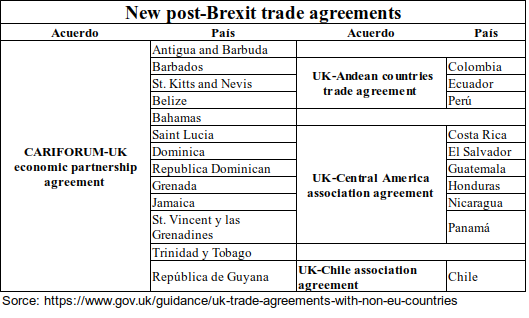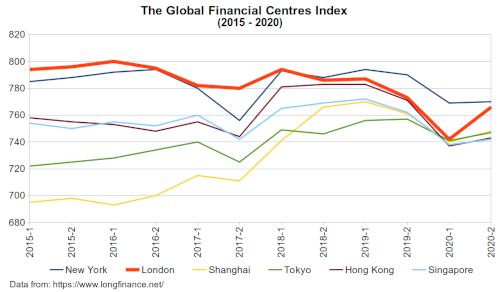Since 23 June 2016, through a referendum with less than 2% difference, the British population decided to leave the European Union (EU). After more than four years of negotiations, two Prime Ministers, three exit plans, and repeated extensions, the Brexit transition period ended on 1 January 2021. Britain's exit from the European Union implies changes in the structure of the world economy. In light of its first months, we will present the UK's economic conditions vis-à-vis the international market, where it stands vis-à-vis the European Union, and what implications it has begun to have on the world economy.
Formally, the UK ceased to be a member of the EU on 1 February 2020. Since then, Brexit entered a transition period, over which it continued under EU rules but lost its say. A deadline of 31 December 2020 was agreed to resolve the final exit measures. From 1 January 2021, amid the COVID-19 health crisis, the UK also ceased to be governed by EU law. At the end of 2020, its gross domestic product (GDP) was, according to International Monetary Fund (IMF) estimates, the fifth largest economy (ninth in purchasing power parity terms). It was, however, hard hit by the COVID19 crisis, with a -10% of GDP contraction, the largest of the G7 countries.

The Brexit negotiations achieved a free trade agreement on goods at the last minute, one week before its implementation. It was essential given its external market concentrates 54% of its exports in Europe, 24% in Asia, and 15% in the United States. A similar proportion is present in its imports: 62% come from Europe, 20% from Asia, and 12% from the United States. Latin America accounts for 1.73% of its exports and 1.41% of its imports. The agreement determined, however, that Brexit would maintain free trade under certain conditions. The agreement defined a minimum origin content of 50% to be tariff-free, which conditions the options for diversifying its market. On the other hand, its exit from the EU implied the reinstallation of customs offices that, although they do not yet operate with tariff schedules, function as review points for foreign trade content between the two parties, which has slowed down the traffic of goods.
During the Brexit negotiations, it signed 59 trade agreements with non-European countries, including the UK-Japan agreement. In Latin America, it also reaffirmed the partners it had via the EU. (see chart). A key element in the Brexit free trade agreement is that it did not incorporate financial services. Financial activity in the UK, concentrated mainly in the City of London, represents more than 6.9% of GDP; and if one considers UK banking in the Caribbean Islands, the proportion is even higher. London has been the world's largest financial market since the 16th century.
More than 300 firms have started to locate outside the UK, especially in Europe. Dublin is the leading destination for financial asset markets, Frankfurt and Paris for the banking system, and Amsterdam for foreign exchange operations. With all this, the UK may be badly affected. However, this transformation in the financial system redefines intra-European positions; even more importantly, it contributes to the business shift to Asian markets.

According to the Global Financial Centres Index (GFCI), which measures the competitiveness of financial markets based on the business environment, financial sector development, market infrastructure, human capital, and other general factors, the centrality of Asian markets is increasing. By 2016, the global leading financial market was still London, followed by New York and by far Singapore and Hong Kong. By the end of 2020, already under Brexit, the City of London moved into second place, New York leads, and the gap with Asian financial markets has narrowed in terms of capitalisation value.
In its first few months, the consequences of Brexit were felt both internally and externally. It is clear that, although the exit succeeded, negotiations between the UK and the EU will have to continue for a long time. There are growing internal political problems, tensions over Ireland's borders, Scotland's pro-European stance, and mobility difficulties between the EU and the island.
The project of British reindustrialisation and economic independence from Europe, via Brexit, has encountered some significant limits; the very high financialisation, deep trade dependence, and lack of productive competitiveness. Britain and the EU face, in common, a long period of low growth and loss of leadership, and the outcome of the subsequent negotiations between the two will be fundamental in defining Europe's new role in the world economy.









